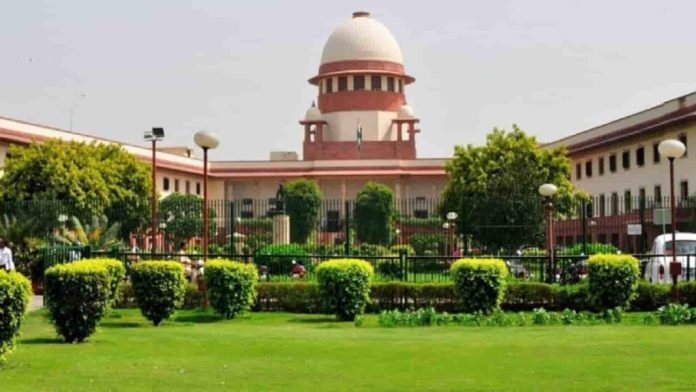A social activist has filed a special leave petition in the Supreme Court against the Madras High Court’s September 5, 2023 verdict, which held that there was no legislation on removal of a Minister in custody.
The matter pertained to the arrest of Tamil Nadu Minister and DMK leader Senthil Balaji, who was arrested on June 14, 2023 by the Enforcement Directorate for his alleged involvement in the cash-for-job case and his continuance as a Minister in the Tamil Nadu government.
Filed by Chennai-based social activist M.L. Ravi, the plea challenged the Madras high Court judgement, which had rejected his plea to quash the letter issued by the Governor on June 29, 2023 to keep in abeyance a letter issued on the same day dismissing Balaji as a minister.
Ravi contended that the Governor cannot revisit, review or modify his own order.
He further said that the High Court was not correct in just issuing a whisper and advice to the Chief Minister, who had already issued a press release that he will retain Minister Balaji without any portfolio.
On October 30, the Apex Court had adjourned the bail application of Tamil Nadu Minister and DMK leader Senthil Balaji, who was arrested in June this year by the Enforcement Directorate for his alleged involvement in the cash-for-job case.
The Bench of Justice Aniruddha Bose and Justice Bela M. Trivedi deferred the hearing after an adjournment request was made by Balaji’s counsel and Solicitor General Tushar Mehta.
On August 7, the Apex Court had dismissed the petitions filed by Balaji and his wife Megala, questioning the legality of arrest and custody.
The Bench of Justice AS Bopanna and Justice MM Sundresh had dismissed the pleas challenging the Madras High Court order, which ruled that the Enforcement Directorate (ED) was entitled to take Balaji into police custody in a money laundering case.
The Apex Court granted ED five-day custody of Balaji till August 12 on the grounds that the word “such custody” under Section 167(2) of the Code of Criminal Procedure (CrPC) would include not only police, but other such custody.
The Bench noted that the writ of habeas corpus was not maintainable against an order of remand.
Referring to the Anupam Kulkarni verdict, the top court of the country observed that police custody was not permissible beyond the first 15 days of remand, to a larger bench for reconsideration.
Senior Advocate Mukul Rohatgi appeared for Balaji, while the ED was represented by Solicitor General Tushar Mehta.
The Bench of Justice J Nisha Bhanu and Justice D Bharatha Chakravarthy had delivered a spilt verdict on July 4.
While Justice Bhanu had ruled that ED was not entrusted with the powers to seek police custody under the PMLA and had directed for forthwith release of the Minister while terming his custody as “illegal,” Justice Chakravarthy had held that there were no illegalities in the arrest procedure and remand.
Against the backdrop of conflicting orders, the matter was referred to a third judge, Justice CV Karthikeyan. While putting an end to the conflicting opinions on July 14, Justice Karthikeyan had said that the central agency was entitled to seek the minister’s custody.
Additionally, he had ruled that although habeas corpus petition was maintainable after a court passing a judicial order of remand only in exceptional circumstances, he said that the present case did not attract any exceptional circumstance.
Aligning with the view of Justice D Bharatha Chakravarthy, the single judge had said, “Legality of the registration of ECIR has never been questioned. Once that legality has not been questioned, the consequent investigation or enquiry cannot also be questioned because a right is vested to so enquire or to so investigate into the offence of money laundering also, quite apart from detecting the trial of the proceeds of crime. Among other powers vested, the respondents had the power to search, to seize, to arrest.
Once an arrest has been initiated and it is stated by the respondents that the detenue/accused had refused to receive the copy of the memo of arrest and also the ground of arrest but it was informed to the brother and the petitioner herein, a reasonable strong presumption can be drawn that efforts had been taken to so inform the grounds of arrest. Therefore, once arrest is legal, remand is legal. A Habeas Corpus Petition would never lie.
(Case Title: ML Ravi vs Principal Secretary to Governor, Government of Tamil Nadu and others)


